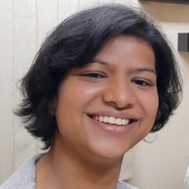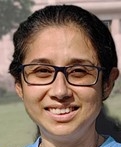Plantae Presents: Future of NGS Technologies
Plantae Presents: Future of NGS Technologies
Featuring Leonie Luginbuehl, Kumud Saini, and Senjuti Sinharoy
When: December 17, 2024, at
8:00 AM PST | 11:00 AM EST | 9:30 PM IST | 12:00 AM Beijing
About this Webinar
Join us for an insightful webinar, “The Future of NGS Technologies,” where leading experts in the field will explore the latest advancements and upcoming innovations in next-generation sequencing (NGS). Our speakers will share their perspectives on how NGS is shaping the future of biological research, from genomics to applied plant sciences, and discuss the transformative impacts of emerging technologies. This event offers a unique opportunity to gain a deeper understanding of NGS’s role in revolutionizing data analysis, enhancing precision in research, and driving discoveries that address global challenges. Don’t miss the chance to connect with experts and envision the future of NGS together. Register now to be part of this forward-looking discussion!
Hosted by the 2024 Plantae Fellows.
SPEAKERS

Dr. Leonie Luginbuehl
Leonie did her PhD at the John Innes Centre in Norwich, UK, where she investigated the transcriptional reprogramming of plant roots during the arbuscular mycorrhizal symbiosis. Her work identified a lipid biosynthesis and export pathway that provides AM fungi with fixed carbon. As a Herchel Smith Fellow at the Department of Plant Sciences in Cambridge, UK, she studied the cell type specific regulation of photosynthesis gene expression in leaves of C3 and C4 plants using single cell sequencing approaches. In September 2022, she started her own group as an Assistant Professor at the University of Cambridge, investigating the molecular mechanisms underlying nutrient exchange during the arbuscular mycorrhizal symbiosis, with a particular focus on the factors that regulate carbon transfer to mycorrhizal fungi. You can find her on X: @l_luginbuehl.

Kumud Saini
Kumud is a postdoctoral researcher at the Sainsbury Laboratory Cambridge University focusing on plant morphodynamics. She is a developmental biologist interested in studying plant-environment interactions. Currently, she is exploring the interplay between thermomorphogenesis and mechanobiology in Arabidopsis. She used single-nuclei sequencing to describe plants’ responses to mechanical stress and identify mechanosensitive genes. You can find her on X: @SainiKumud.
 Dr. Senjuti Sinharoy
Dr. Senjuti Sinharoy
Dr. Sinharoy earned her bachelor’s degree in Chemistry and master’s degree in Biochemistry from Calcutta University, India. In 2009, she completed her PhD in Biochemistry at Calcutta University, focusing on symbiotic plant-microbe interactions. She began her research career at the Noble Research Institute in the USA, serving first as a Postdoctoral Fellow and later as a Research Scientist. Dr. Sinharoy has received several prestigious accolades, including the Ramalingaswami Fellowship, SERB Early Career Award, SERB Power Grant, and CSIR-ASPIRE Grant. Her research is centered on Evo-Devo questions related to plant-beneficial microbe interactions. By integrating next-generation sequencing, cell biology, and biochemistry, she aims to unravel the evolutionary adaptations that enable legumes to optimize symbiotic efficiency. You can find her on X: @ssinhar.
MODERATORS

Prakshi Aneja
Prakshi is a Ph.D. scholar at the National Institute of Plant Genome Research in India and a 2022 Plantae Fellow. Her current research focuses on leaf development, particularly understanding the genetic basis and cellular morphogenesis during the development of leaves in third dimension. Besides research, Prakshi is passionate about music and loves playing the guitar. She is also an amateur photographer and enjoys snapping photos of nature. You can find her on X: @PrakshiAneja.

Arijit Mukherjee
Arijit is a PhD candidate at the National University of Singapore. His research aims to understand how plant sulfur nutrition is coordinated in presence of numerous microorganisms across plant niches. He uses metagenomics, bioinformatics, and molecular biology techniques to address these questions. He has several years of experience in generating and analyzing large scale microbial genomics data. You can find him on X: @ArijitM61745830.



